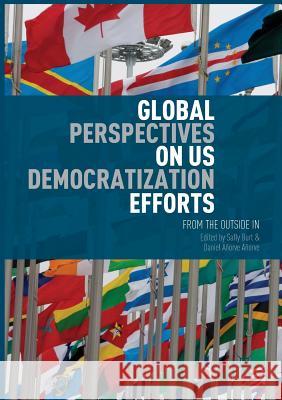Global Perspectives on Us Democratization Efforts: From the Outside in » książka
topmenu
Global Perspectives on Us Democratization Efforts: From the Outside in
ISBN-13: 9781349954810 / Angielski / Miękka / 2018 / 223 str.
Kategorie BISAC:
Wydawca:
Palgrave MacMillan
Język:
Angielski
ISBN-13:
9781349954810
Rok wydania:
2018
Wydanie:
Softcover Repri
Ilość stron:
223
Waga:
0.29 kg
Wymiary:
21.01 x 14.81 x 1.3
Oprawa:
Miękka
Wolumenów:
01
Dodatkowe informacje:
Wydanie ilustrowane











